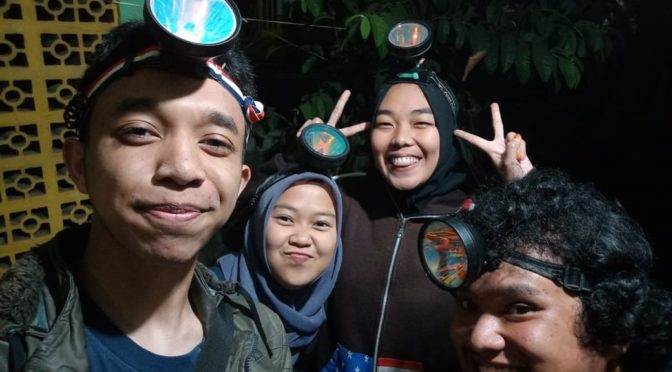“Humanity can no longer stand by in silence while our wildlife are being used, abused and exploited. It is time we all stand together, to be the voice of the voiceless before it’s too late. Extinction means forever” – Paul Oxton
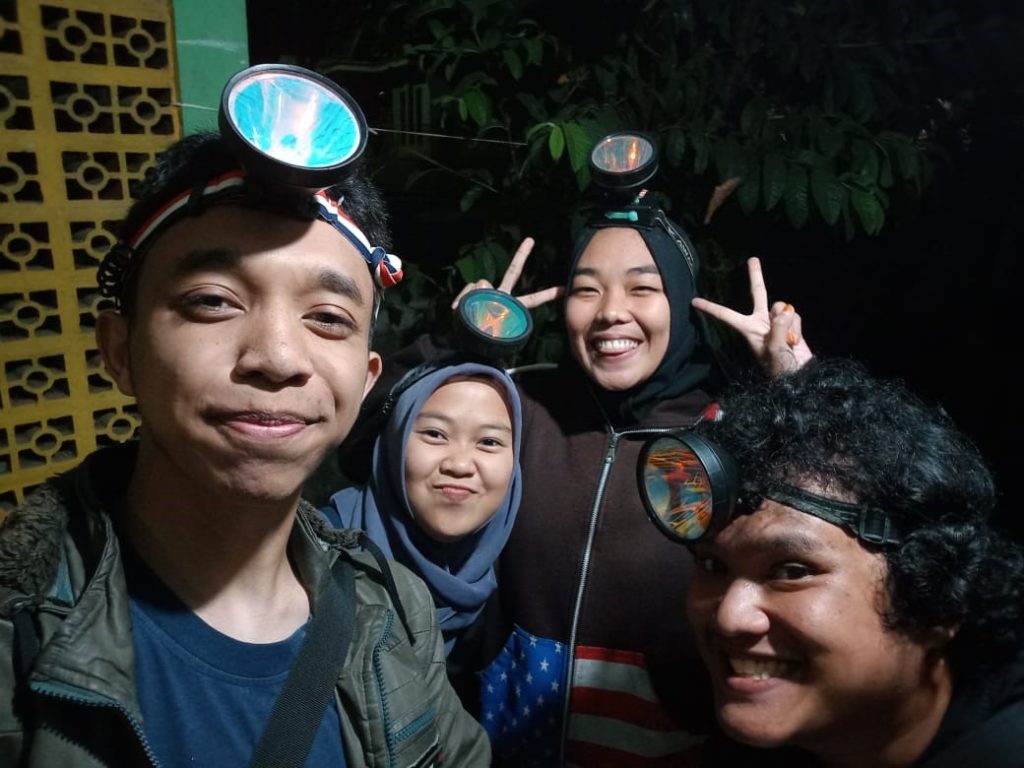
The beauty of Cipaganti
Cipaganti is one of the villages in Cisurupan, Garut Regency, West Java. The location of Cipaganti is bordered by the attractions of Mount Papandayan Crater, Papandayan Recreation Park, and Bukit Nangklak. The variety of biodiversity and slow loris habitat (Nycticaebus sp) makes Cipaganti called as an eco-tourism village based on ecology and conservation. This potential is supported by the role of the “Little Fireface Project” which conducts research in Cipaganti Village. “Little Fireface Project” is an activity engaged in conservation through ecology, education, and empowerment. Activities undertaken include Javan slow loris habitat conservation, environmental education at schools, coffee programme, and bird watching. This August period, we were allowed to join as volunteers in the “Little Fireface Project”. We learned a lot and got many experiences, including participating in the observation of Javan slow loris, bird watching and studying the abundance of nocturnal animals in Cipaganti Village. Our team consists of Hesti (IPB Vocational School), Rina (IPB University), Fahmi (ITB), and Ilham (ITB). In this article, we would like to share our experiences and learning outcomes obtained from volunteer activities in the “Little Fireface Project”.
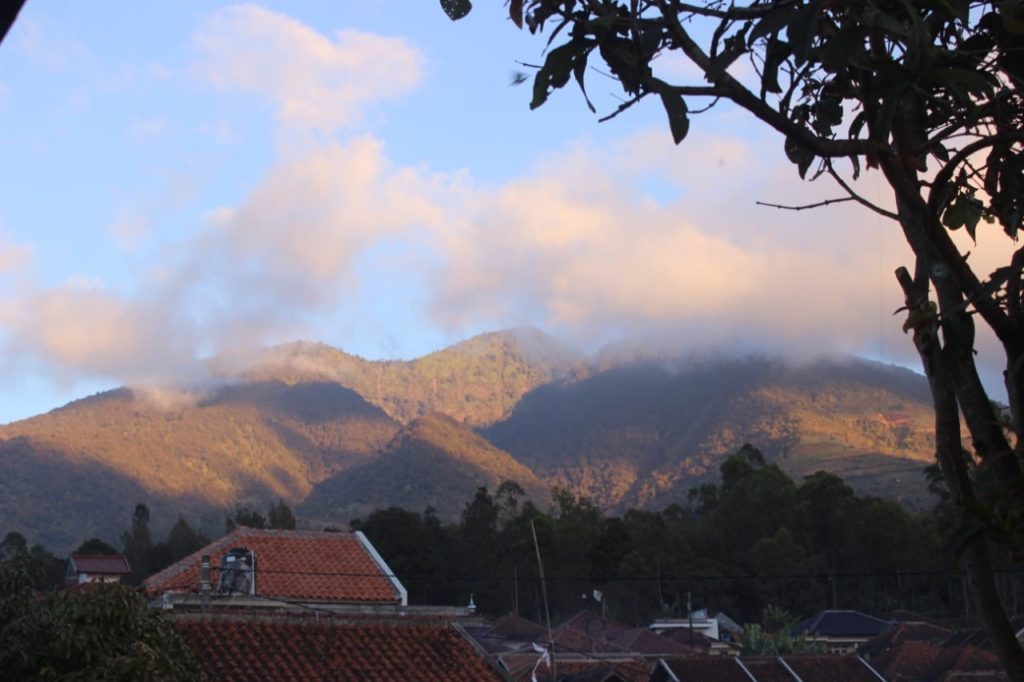
Javan slow loris observations
Observation carried out by observing the slow loris behavior every 5 minutes starting from the slow loris woke up to sleep. Generally, observations are held in 2 shifts from 17.00-05.00. During observations, we can find interesting things such as meeting owls, ferrets, and other animals. Slow lorises are nocturnal primates. Slow lorises play an important role in the balance of ecosystems, including helping pollinate and spread plants in nature. In addition, slow lorises can minimize insect pests that attack plants by eating them. Observation activities refer to the ethogram table to fill the data analysis of Javan slow loris behavior. There are many challenges during observation activities such as cold temperatures (because the activities are carried out at night), the shyness of the slow loris makes it difficult to observe, the bright moon factors (that make slow lorises hiding), and social activities that very difficult to find.
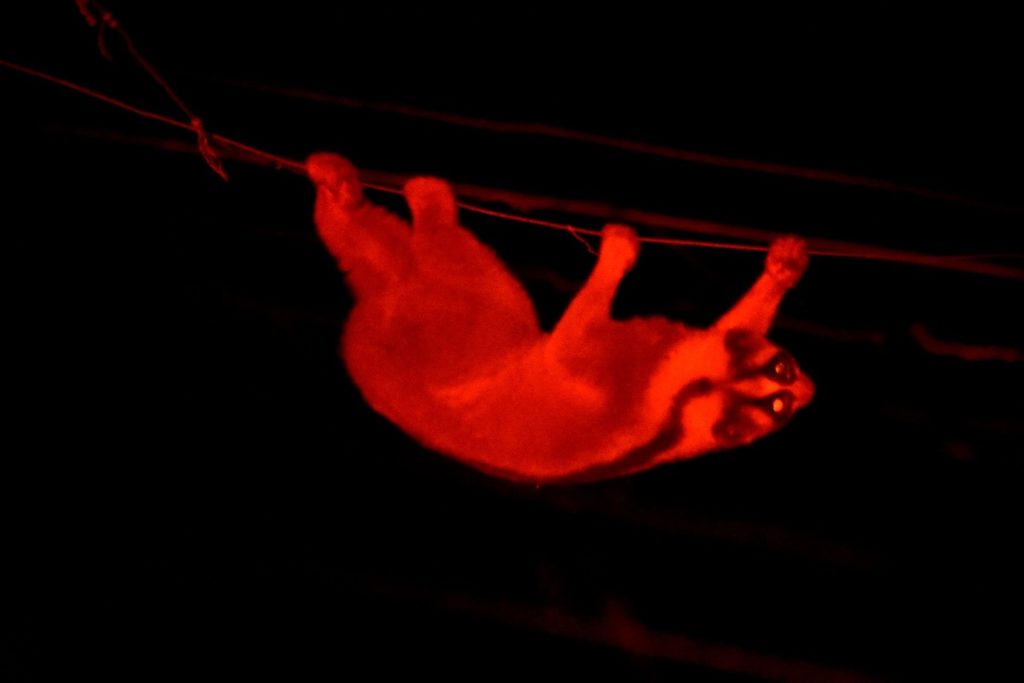
Agroforestry, the existence of Javan slow loris, and birds
Cipaganti has fairly good agroforestry. Collaboration between crops cultivated by farmers can help slow lorises adapt in the environment and keep ecosystem balance. Some of the crops planted by farmers include chayote, Eucalyptus, red caliandra, avocado, coffee, bamboo, etc. Now the Javan slow loris has been included in protected animals and the number is getting smaller. In fact, slow loris are very important for the balance of the ecosystem. The existence of Javan slow loris observation program is expected to help preserve the conservation of Javan slow loris and to help preserve Indonesian endemic animals. Besides slow loris, there is another animal that we have observed in Cipaganti. Birds are one of the key factors that helps the farmers. The large population of birds contributes to the pollination of some crops and eradicating pests. When we were observing the coffee plantation, there were some birds searching for food inside the field. One of the example is sooty-headed bulbul (Pycnonotus aurigaster). This bird foods are fruits and insects. Bulbul can benefit the farmer because the pests are being eaten by them but the bird also eats farmer crops such as banana and papaya.
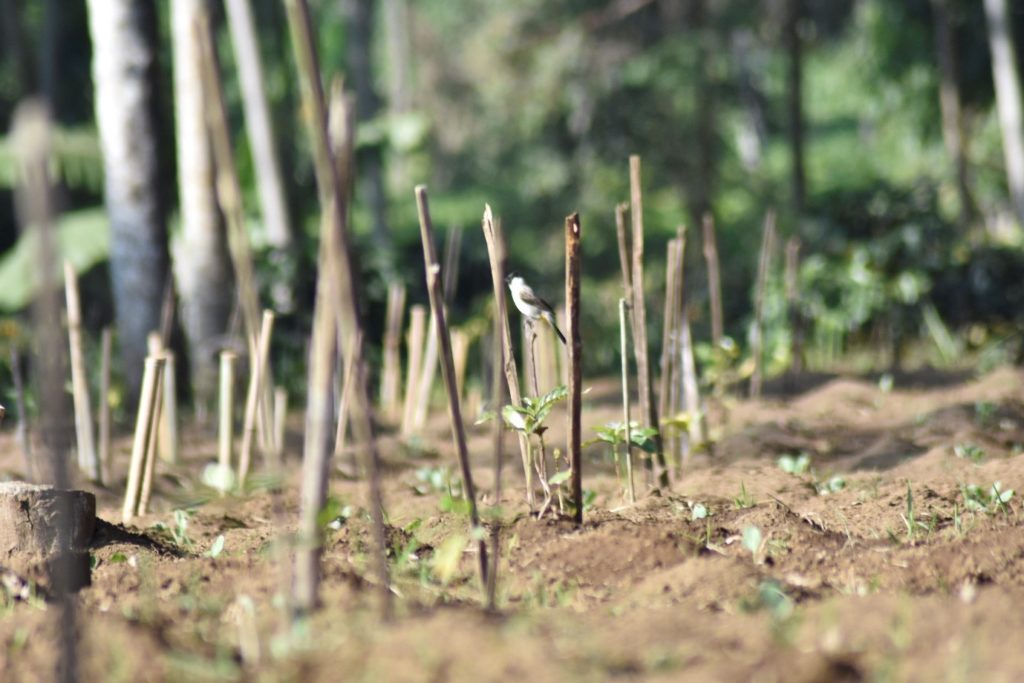
Protecting the forest and its biodiversity
It is clear that humans must not exploit the nature and conserve the biodiversity. The declining population of animals and plants is concerning and should have been stopped. Educating the children about conserving the nature must be done in order to reduce and prevent the damage of the nature in the future. We hope by volunteering in this project, we could spread the knowledge and experiences in here to make people realize about the importance of wildlife and conservation.
Mohammad Fahmi Hakim
Hesti Maulida
Rina Nurfazita

